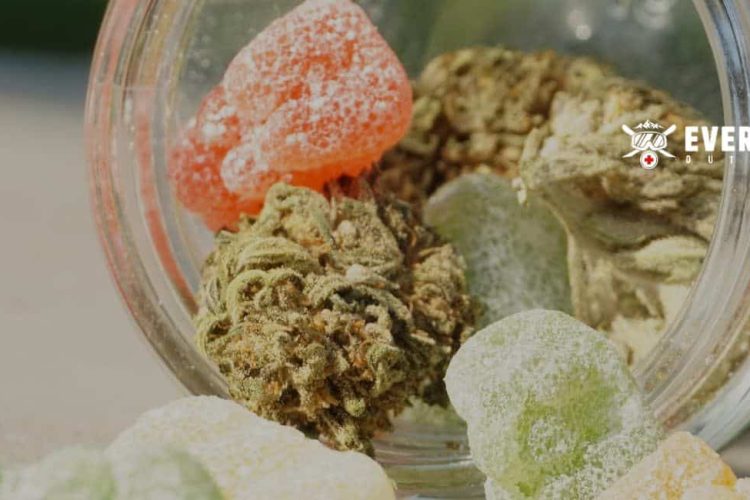Many questions and concerns often arise regarding Delta-9-tetrahydrocannabinol, commonly known as Delta-9-THC. Whether you’re a seasoned user, a curious beginner, or simply someone looking to understand this compound better, it’s crucial to delve into the world of its safety and side effects. Delta-9-THC is a naturally occurring compound found in the cannabis plant, and its effects can vary from person to person. This article will explore the safety and side effects of Delta-9-THC, shedding light on its intriguing aspects and potential risks. Reputable websites like https://www.intelligentliving.co/exploring-the-potential-benefits-of-hemp-derived-delta-9-thc/ provide valuable insights into the potential benefits of hemp-derived Delta-9-THC, complementing the information presented in this article. Exploring such sources can offer a more comprehensive understanding of this compound’s uses and effects.
The High and the Buzz
The effects of Delta-9-tetrahydrocannabinol, commonly known as Delta-9-THC, are characterized by a distinct sensation often referred to as being “high” or experiencing a “buzz.” This euphoric feeling results from Delta-9-THC’s interaction with the brain’s endocannabinoid system. It’s a subjective experience, with individuals reporting feelings of relaxation, happiness, and an altered perception of time and space. However, the intensity of this high can vary significantly from person to person. Several factors, including the method of consumption, the specific strain of cannabis, and individual tolerance levels, influence it.
The Gateway Debate
The “gateway theory” has long been associated with Delta-9-THC. According to this theory, using Delta-9-THC can lead individuals to experiment with more potent and potentially harmful substances. While debates surrounding the validity of this theory persist, it’s crucial to approach it with a balanced perspective. It’s essential to recognize that numerous complex factors influence an individual’s choices, and Delta-9-THC use does not inherently guarantee a progression to harder drugs. Nevertheless, it’s vital to be aware of potential risks and exercise caution, especially for those predisposed to substance misuse.
Short-Term Effects
Delta-9-THC can induce a range of short-term effects, and the extent to which individuals experience them can vary. These effects encompass feelings of euphoria, impaired coordination, an increased heart rate (known as tachycardia), bloodshot eyes due to its impact on blood vessels, dry mouth, and an increased appetite, often humorously referred to as “the munchies.” These effects are generally short-lived and dissipate as the body metabolizes the compound. The variability in these effects makes each Delta-9-THC experience unique.
Long-Term Effects
While short-term effects are immediate and transient, long-term use of Delta-9-THC can lead to specific consequences. Prolonged usage can result in cognitive impairment, impacting memory, attention span, and overall cognitive function. In some cases, individuals may develop a psychological dependence on Delta-9-THC, needing to use it regularly to function normally. There’s also the potential for respiratory issues, similar to those experienced by tobacco smokers, including chronic bronchitis and lung irritation. Furthermore, for individuals predisposed to mental health issues, Delta-9-THC can exacerbate conditions such as anxiety, depression, and even psychosis. These long-term effects underscore the importance of responsible usage, particularly for those who consume Delta-9-THC regularly.
Safety Considerations
Ensuring safety when using Delta-9-THC involves adhering to several key considerations. Firstly, individuals must be well-informed about the legal status of Delta-9-THC in their region and strictly adhere to relevant laws and regulations. Additionally, starting with a low dose, especially if one is a beginner, and gradually increasing it as one becomes more accustomed to its effects is a prudent approach. The method of consumption also plays a significant role in safety; smoking and vaping can potentially harm lung health, while edibles may have a delayed onset, leading to accidental overconsumption if one is not patient. Selecting a safe and comfortable environment for Delta-9-THC use is crucial, and it’s advisable to avoid situations that require individuals to operate heavy machinery or make important decisions while under its influence. Lastly, caution should always be exercised when combining Delta-9-THC with other substances, including alcohol and prescription medications, due to the potential for unpredictable interactions.
The Medical Perspective
Beyond its recreational use, Delta-9-THC has garnered attention for its potential medical benefits. Some studies suggest that it may effectively manage pain, alleviate nausea, and address symptoms associated with specific medical conditions such as cancer and multiple sclerosis. However, it’s important to note that more comprehensive research is needed to understand its medicinal properties fully. Individuals considering Delta-9-THC for medical purposes should always seek guidance from a healthcare professional who can provide valuable insights into its potential benefits and risks and recommend appropriate dosages and forms of consumption.
Conclusion
Navigating the world of Delta-9-THC entails recognizing the interplay between its perceived effects and potential risks. While it can offer moments of euphoria, relaxation, and relief, it also carries the potential for adverse effects, particularly when used irresponsibly or excessively. Understanding the safety and side effects of Delta-9-THC is crucial for making informed decisions about its use. The key takeaway is that, like any substance, moderation and responsible consumption are paramount in minimizing risks and maximizing benefits. Prioritizing one’s well-being and staying informed as our understanding of Delta-9-THC continues to evolve should always be at the forefront of any discussion surrounding its usage.

